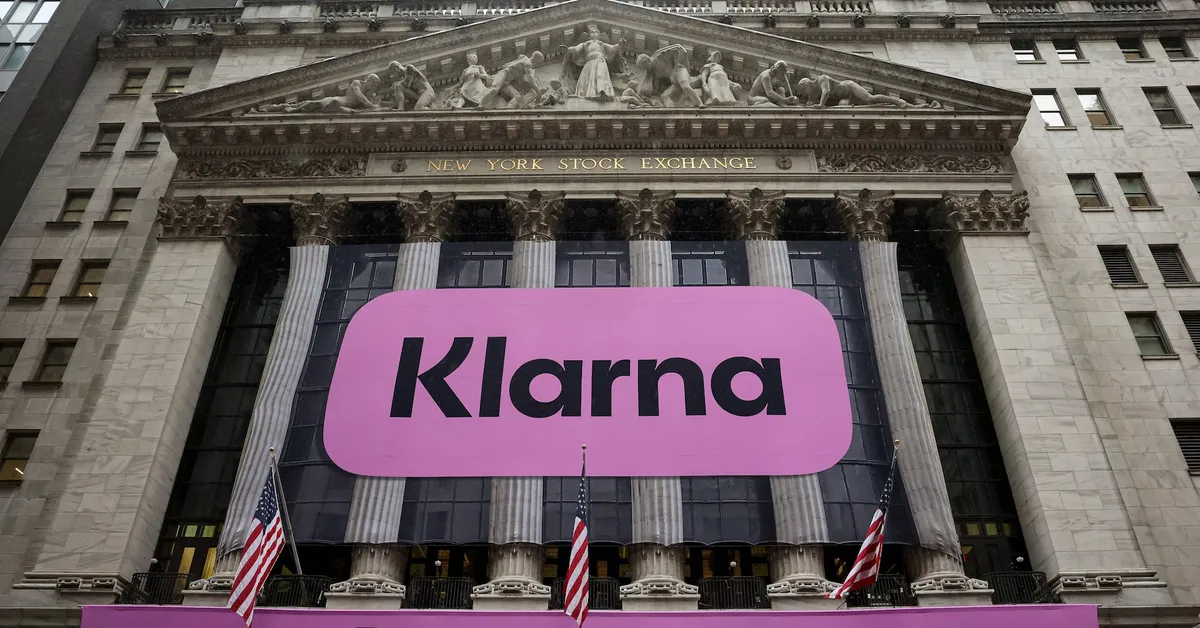
The shares of Klarna opened at $52, significantly surpassing their initial public offering (IPO) price of $40 each. This significant increase highlights the strong demand for Klarna's shares, positioning the company as a leader among seven firms, including the Winklevoss twins' crypto exchange Gemini, that are set to go public in New York by Friday. This week is anticipated to be the largest for the U.S. IPO market in several years, paving the way for a vibrant fall trading season.
The current favorable market conditions in the IPO landscape are a stark contrast to earlier in the year when tariff-driven volatility slowed new issues and halted the IPO plans of several major players, including Klarna. In April, many companies, including Klarna, paused their IPO aspirations due to these market fluctuations. However, the recent successful pricing of Klarna's IPO, where the company and its investors sold 34.3 million shares at $40 each—above the anticipated range of $35 to $37—values the company at $15.1 billion.
Niclas Neglén, the Chief Financial Officer of Klarna, emphasized the significance of this IPO for new shareholders, stating, "This (going public) is really an opportunity…primarily for new shareholders, our 111 million consumers and others to really partake in that journey to disrupt the financial services industry." The IPO has drawn significant backing from prominent investors, including Sequoia Capital and Danish billionaire Anders Holch Povlsen's Heartland A/S, raising $1.17 billion in the process. Notably, CEO Sebastian Siemiatkowski retained his stake, owning approximately 7% of Klarna, and did not sell any shares during the IPO.
According to Samuel Kerr, head of equity capital markets at Mergermarket, the valuation of $15 billion is a promising outcome, particularly given it exceeded Klarna's price range. This trend indicates a conservative approach among issuers regarding initial valuations, aiming to attract investor interest while leaving them eager for more. At its peak in 2021, Klarna was valued at $45.6 billion, but this figure plummeted to $6.7 billion a year later due to rising inflation and interest rates.
Having considered various options for going public, including a direct listing in 2021, Klarna has finally made its move into the New York market. Analysts like Russ Mould from AJ Bell speculate that a strong aftermarket performance could encourage other fintech companies to pursue their own public offerings. However, Mould also warns that a series of successful deals might lead to a rush of less favorable ones in the market.
Klarna, founded in 2005 during the early days of e-commerce, has emerged as a heavyweight in the buy-now, pay-later (BNPL) sector, significantly transforming the way consumers approach online shopping with its short-term financing model. The BNPL model allows shoppers to make purchases in smaller installments, a trend that gained traction during the COVID-19 pandemic. As consumers face persistent inflation, labor market challenges, and stagnant income growth, the demand for BNPL services continues to rise.
Brian Jacobsen, chief economist at Annex Wealth Management, noted that Klarna's IPO will serve as a litmus test for investor sentiment towards BNPL services. While Klarna primarily focuses on smaller purchases and short-term loans, its competitor, Affirm, targets larger purchases with longer-term zero-interest financing options. Despite being profitable for its first 14 years, Klarna has faced losses in recent years as it expanded into the U.S. and other markets.
In a recent interview, Siemiatkowski highlighted Klarna's current strategy, stating, "Right now, we're more focusing on bringing additional value to our existing user base than the growth of the user base, because the growth has been very, very consistent." Analysts predict that BNPL services will progressively capture market share from debit cards as consumers increasingly seek flexible payment options.
This IPO not only signals a revival in the U.S. IPO market but also underscores the evolving landscape of fintech and consumer financing solutions.